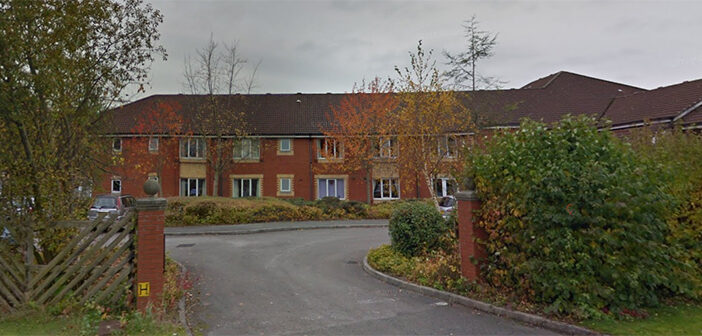A Warrington care home has been placed in special measures after being found to be “inadequate” following an inspection by the Care Quality Commission (CQC).
The inspection of Callands Care Home followed concerns about the management of the service, medication, and people’s nursing care needs with a requirement to improve following four previous inspections.
The last inspection was published on 21 March 2021. The provider completed an action plan after the last inspection to show what they would do and by when to improve. At this inspection, inspectors found the provider remained in breach of regulations.
Callands ‘care home’ provides accommodation, nursing and personal care for up to 120 younger and older adults; some of whom live with dementia or physical disabilities. At the time of the inspection, 109 people were living at the home across four separate units. Issues found at the home, included only one activity coordinator for 109 people, with limited activities available.
The CQC expect health and social care providers to guarantee autistic people and people with a learning disability the choices, dignity, independence and good access to local communities that most people take for granted. Right support, right care, and right culture is the statutory guidance which supports CQC in making assessments and judgements about services providing support to people with a learning disability and/or autistic people. They considered this guidance as there were people using the service who have a learning disability and or who are autistic.
The inspectors found that people were not involved in their care planning. Care plans were not reflective of people’s needs and lacked person-centred details. Risks were not always assessed. There was only one activity coordinator available to provide support to 109 people, there was limited activities available. The environment was not supportive of people living with dementia there was limited signage to promote independence.
People were not supported to have maximum choice and control of their lives and staff did not support them in the least restrictive way possible and in their best interests; the policies and systems in the service did not support this practice.
The service had an inconsistent staff team and high agency use. This meant staff were not always aware of people’s needs. People’s communication needs were not always recorded and there was a lack of awareness of how to apply national best practice supporting people with a learning disability and autistic people.
Some inappropriate language was used when referring to people who used the service.
Although some people had individual ways of communicating, using body language, Makaton (a form of sign language), pictures and symbols, this was not documented which meant staff were not aware of how best to communicate with people to provide effective support and encourage independence.
Staffing levels and shift patterns were insufficient to enable all people to access the community to pursue their leisure interests and form meaningful relationships within their local community.
Staff did not always have the training and skill needed to support people effectively. Some staff had poor relationships with each other and management. Staff did not always feel management
were approachable and supportive.
Governance processes were not always effective in the monitoring of the service. Whilst some of the concerns were identified through the service’s own provider audits, they had failed to rectify the concerns raised.
Following concerns in relation to the management of the service, medication, and people’s nursing care needs the CQC undertook a focused inspection to review the key questions safe and well-led only.
During the inspection, other concerns were identified and as a result, they opened the inspection to include the responsive domain. For those key questions not inspected, they used the ratings awarded at the last inspection to calculate the overall rating. The overall rating for the service has changed from requires improvement to inadequate based on the findings of this inspection.
They found evidence that the provider needs to make improvements.
They identified continued breaches in relation to lack of risk assessment, medicines management and governance systems in managing and monitoring the service. There were also breaches identified in relation to the lack of person-centred care, safeguarding people from abuse, clinical practice and staffing, at this inspection.
The overall rating for this service was ‘Inadequate’ and the service was therefore in ‘special measures’. This means the CQC will keep the service under review and, if they do not propose to cancel the provider’s registration, they will re-inspect within 6 months to check for significant improvements.
For adult social care services, the maximum time for being in special measures will usually be no more than 12 months. If the service has demonstrated improvements when next inspected and it is no longer rated as inadequate for any of the five key questions it will no longer be in special measures.
At the time of the inspection, there was not a registered manager in post. A new manager had been in post for 4 months and had submitted an application to register. The CQC is currently assessing this application.
During the inspection they spoke to 12 people who lived at the service and 4 family members. They also spoke with 17 members of staff including, area director, clinical lead, deputy manager, nurses, nursing assistants and carers, to gain their views and experience of the service.
They also spoke to external professionals. They reviewed 15 care records, multiple medication administration records, and 3 staff personnel files and 4 agency profiles in relation to recruitment. They also viewed various records, policies, and procedures in relation to the governance of the service and management.
A spokesperson from HC One who operate the Callands Care Home said: “Our priority is the health and wellbeing of our residents, and we always take all feedback from the regulator seriously. We are disappointed in the outcome of the latest CQC inspection, and acknowledge that we fell short of the high standards of care our residents expect and deserve.
“Since the CQC inspectors visited our home in September, we have already made progress in line with our comprehensive action plan. We have implemented additional leadership in the home, and have provided our staff with enhanced refresher training.
“With the support of the Local Authority and CQC, and under the guidance of our new experienced Home Manager, we are continuing to work hard to make and embed the changes needed at the home. “All of us are united in our mission to ensure that our Residents receive the best possible quality of care.”
A full copy of the report can be read here




